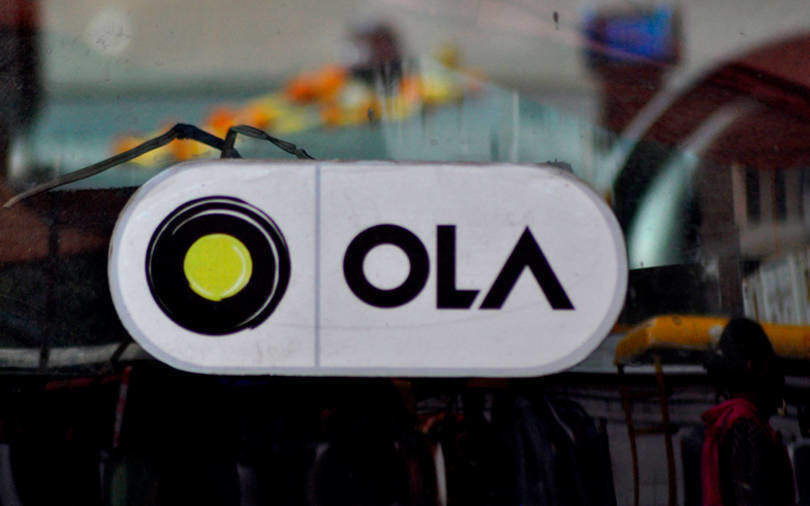
Ola’s electric mobility arm gets funding from Ratan Tata as part of Series A round


Ola’s electric vehicles arm has raised an undisclosed sum from Ratan Tata, chairman emeritus of Tata Sons, it said in a statement.
The current tranche is part of Ola Electric Mobility’s Series A round of funding.
In March this year, Ola Electric Mobility Pvt. Ltd had raised Rs 400 crore ($56 million) from the ride-hailing unicorn’s existing investors including New York-based hedge fund Tiger Global Management and venture capital firm Matrix Partners India.

“Tata’s investment in Ola Electric is a significant endorsement of the company’s approach to developing an electric mobility ecosystem, including innovations in charging infrastructure, swapping models, and market-appropriate products,” the company said in the statement.
Tata is an early investor in ANI Technologies Pvt. Ltd, Ola’s parent company.
Ola Electric is currently running pilots involving charging solutions, battery swapping stations, and deploying vehicles across two, three and four-wheeler segments.

“The electric vehicle ecosystem is evolving dramatically every day, and I believe Ola Electric will play a key role in its growth and development,” Tata said.
Ola Electric Mobility is an independent company floated by Ola as an extension of its Mission Electric programme announced last April to launch 10,000 electric vehicles, most of them three-wheelers, by this year and get one million electric vehicles on the road by 2022.
Headed by Ola executives Anand Shah and Ankit Jain, Ola Electric Mobility primarily focuses on deploying charging and battery-swapping networks for the commercial electric vehicles segment.

The Bengaluru-based cab-hailing firm had roped in Shah, a former executive at German carmaker BMW, to head its electric vehicles programme last March. Jain was previously heading Ola Play, the ride-hailing company’s in-car entertainment system. A graduate of the Indian Institute of Technology-Bombay and the MIT Sloan School of Management, Jain has previously worked with McKinsey and Opera Solutions.
Ola has already partnered with several original equipment manufacturers and battery makers and intends to work closely with the automotive industry to create solutions for electric vehicle operations, the company added.
In March this year, the ride-hailing unicorn’s parent company had raised $300 million (Rs 2,050 crore) from South Korean automakers Hyundai Motor Co and Kia Motors Corp. The three companies plan to collaborate to develop fleet and mobility solutions as well as build India-specific electric vehicles and infrastructure.

Ola's other investors include Japanese internet conglomerate SoftBank Group Corp and China's Tencent Holdings Ltd. The company is raising funding from a bunch of new and existing investors as part of measures to diversify its shareholding base and reduce its reliance on SoftBank, which also owns a stake in Uber.
In February this year, the homegrown company raised Rs 112 crore ($15.6 million) from a clutch of new foreign investors including Raymond S Cahnman, chairman of trading firm the TransMarket Group; New York-based philanthropists Tina and Steven Price; J3T Ventures; and investment firm Lyon Assets.
Also in February, Ola pocketed Rs 650 crore ($92 million) from Flipkart co-founder Sachin Bansal. In January, it secured Rs 520.79 crore ($73.97 million) from existing investor Steadview Capital.

Ola had earlier partnered with Mahindra & Mahindra, which is the largest manufacturer of electric vehicles in the country, to run a pilot project in Nagpur.
Cab aggregator Uber Technologies Inc., Ola’s key rival in the Indian market, had announced its intention to switch to electric vehicles in the long term. Uber, too, had partnered Mahindra and Mahindra to pilot electric vehicles on its platform in India.
In February, Mahindra decided to enter the shared mobility space independently with an electric vehicles-based ride-hailing service called Glyd that is kicking off operations in Mumbai.

In a related development, the Indian government recently approved a $1.4 billion scheme to subsidise sales of electric and hybrid vehicles as it looks to control pollution and reduce dependency on fossil fuels.
The programme, named Faster Adoption and Manufacturing of Hybrid and Electric Vehicles (FAME), will offer subsidies based on the battery capacity of the vehicle, ranging from buses and cars to three-wheelers and motorbikes. The incentives would be applicable only on vehicles costing less than Rs 15 lakh.
